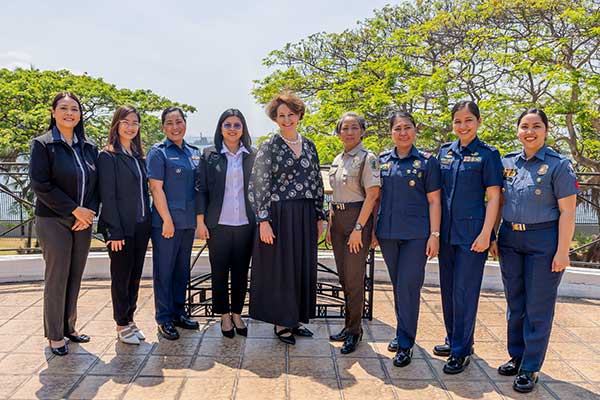
The United States government, through the U.S. Embassy’s Office of International Narcotics and Law Enforcement Affairs (INL), sponsored the participation of eight Filipino delegates at the “INL Regional Women in Law Enforcement Training” held from February 26 to March 1 in Chiang Mai, Thailand, to help enhance the recruitment, retention, and promotion of women in the law enforcement sector.
Personnel from the Philippine National Police (PNP), the Philippine Drug Enforcement Agency, the Philippine Coast Guard, the Bureau of Corrections, and the Bureau of Fisheries and Aquatic Resources attended the training together with their counterparts from Cambodia, Indonesia, and Thailand.
Facilitated by experts from the U.S. Federal Law Enforcement Training Center, the training covered fundamental topics including leadership, emotional intelligence, change management, and project management. It culminated with the development of a project charter for each participating country that identifies gaps and opportunities to improve the status of women working in law enforcement organizations.
“As we celebrate Women’s Month, it is only fitting that we take this opportunity to shine a spotlight on your remarkable achievements and contributions,” U.S. Ambassador MaryKay Carlson said. “The U.S. Embassy looks forward to continued collaboration in building a future where women in law enforcement, and all sectors, are celebrated, respected, and empowered to reach their full potential.”
“The INL Regional Women in Law Enforcement Training Workshop provided an opportunity for women in the law enforcement sector to promote women empowerment, gender equality, and inclusion,” PNP Colonel Nieves Dela Peña said. It served as a venue to strengthen collaboration and support among women in the law enforcement sector in the region, gain new knowledge and share best practices that can help in developing strategic plans in respective countries and organizations.”
INL works with Philippine law enforcement agencies in countering crime, illegal drugs, and instability, as well as expanding programs promoting gender equality in the sector.



















